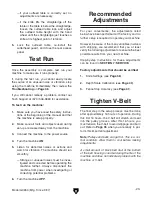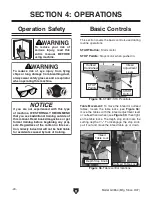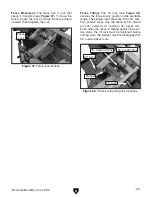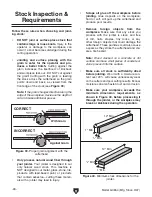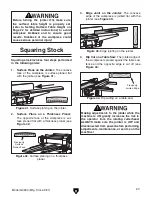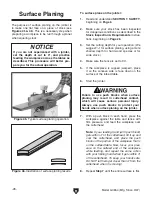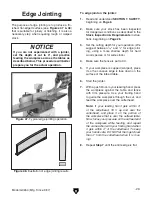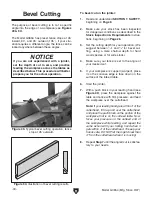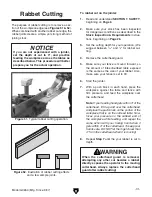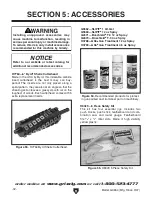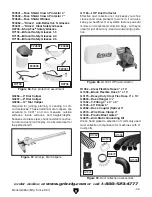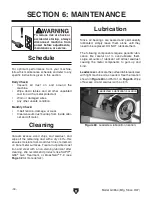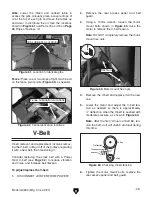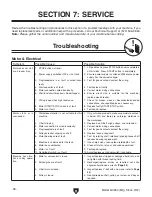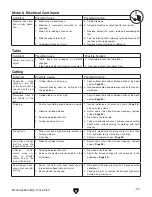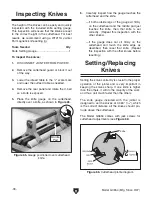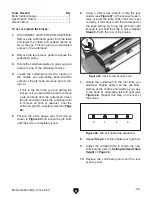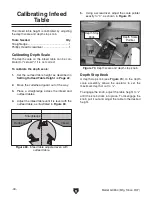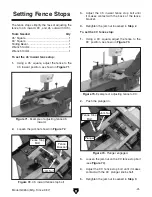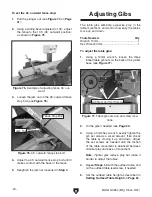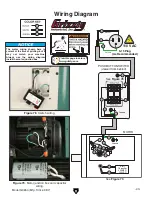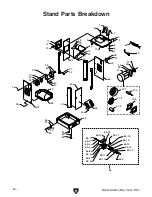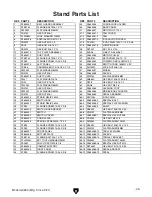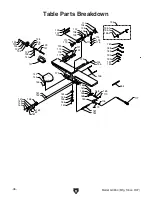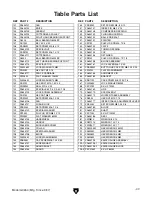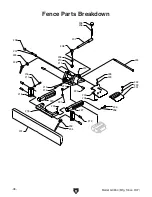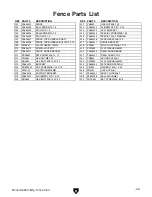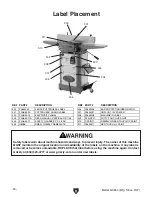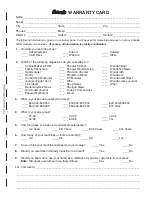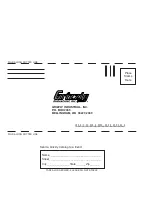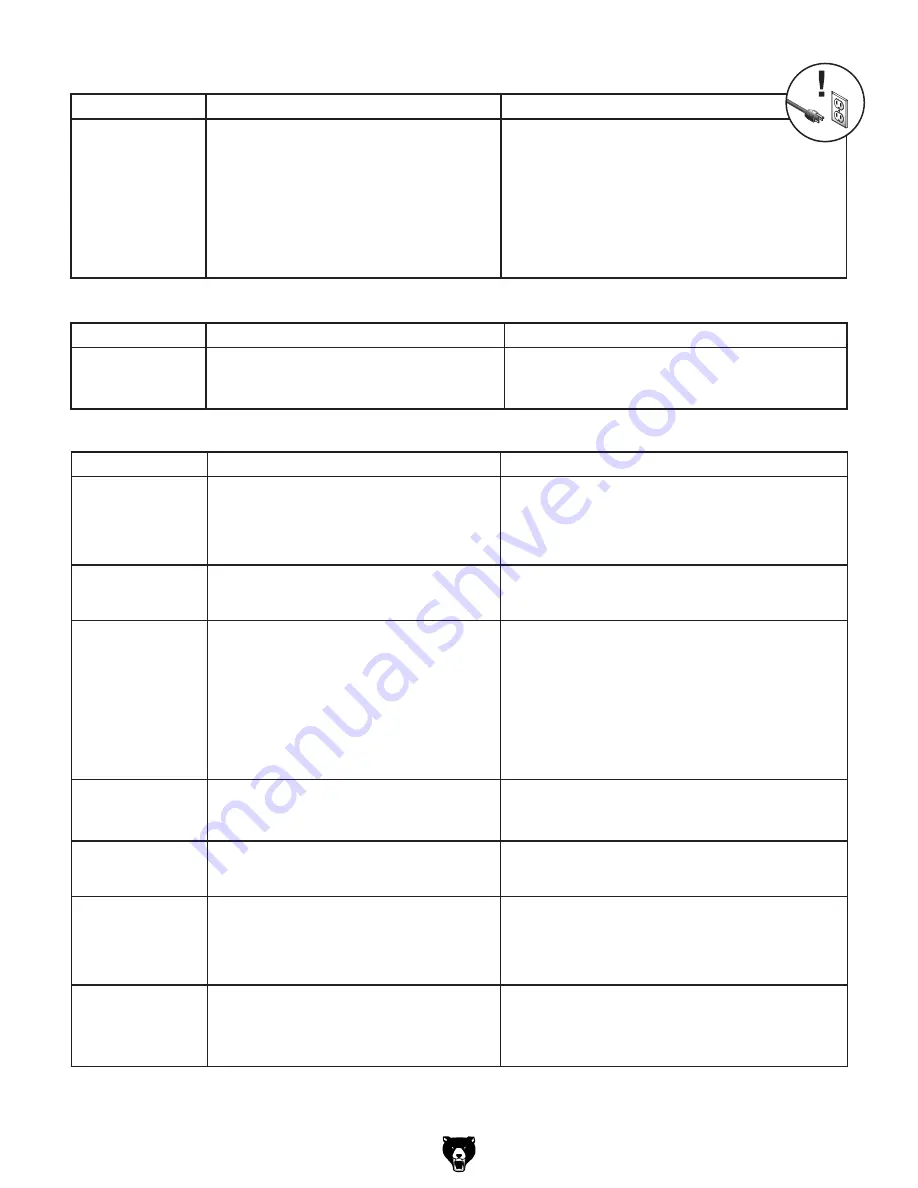
Model G0654 (Mfg. Since 9/07)
-37-
symptom
possible Cause
possible solution
tables are hard to
adjust.
1. table locks are engaged or partially
engaged.
2. infeed table depth stop blocking movement.
1. Completely loosen the table locks.
2. disengage infeed table depth stop.
Table
symptom
possible Cause
possible solution
excessive
snipe
(gouge in the end
of the board that is
uneven with the rest
of the cut).
1. outfeed table is set too low.
2. operator pushing down on trailing end of
the workpiece.
1. align outfeed table with cutterhead knife at top dead
center (
page 22).
2. reduce/eliminate downward pressure on that end of
workpiece.
Workpiece stops in
the middle of the
cut.
1. outfeed table is set too high.
1. align outfeed table with cutterhead knife at top dead
center (
page 22).
Chipping.
1. Knots or conflicting grain direction in wood.
2. nicked or chipped blades.
3. Feeding workpiece too fast.
4. taking too deep of a cut.
1. inspect workpiece for knots and grain (
page 26);
only use clean stock.
2. adjust one of the nicked knives sideways; replace
knives (
page 38).
3. slow down the feed rate.
4. take a smaller depth of cut. (always reduce cutting
depth when surface planing or working with hard
woods.)
Fuzzy grain.
1. Wood may have high moisture content or
surface wetness.
2. dull knives.
1. Check to make sure moisture content is less than
20% and allow to dry if moisture is too high.
2. sharpen or replace knives (
page 38).
long lines or ridges
that run along the
length of the board
1. nicked or chipped knives.
1. adjust one of the nicked knives sideways; replace
knives (
page 38).
uneven
cutter
marks, wavy sur-
face, or chatter
marks across the
face of the board.
1. Feeding workpiece too fast.
2. Knives not adjusted at even heights in the
cutterhead.
1. slow down the feed rate.
2. adjust the knives so they are set up evenly in the
cutterhead (
page 38).
Board edge is con-
cave or convex after
jointing.
1. Board not held with even pressure on
infeed and outfeed table during cut.
2. Board started too uneven.
1. hold board with even pressure as it moves over the
cutterhead.
2. take partial cuts to remove the extreme high spots
before doing a full pass.
cutting
Motor & Electrical continued
symptom
possible Cause
possible solution
machine has vibra-
tion or noisy opera-
tion.
5. motor mount loose/broken.
6. machine is incorrectly mounted or sits
unevenly.
7. motor fan is rubbing on fan cover.
8. motor bearings are at fault.
9. Cutterhead bearings at fault.
5. tighten/replace.
6. relocate machine or adjust feet to level jointer.
7. replace dented fan cover; replace loose/damaged
fan.
8. test by rotating shaft; rotational grinding/loose shaft
requires motor replacement.
9. replace bearing(s)/realign cutterhead.
Содержание G0654
Страница 56: ......

